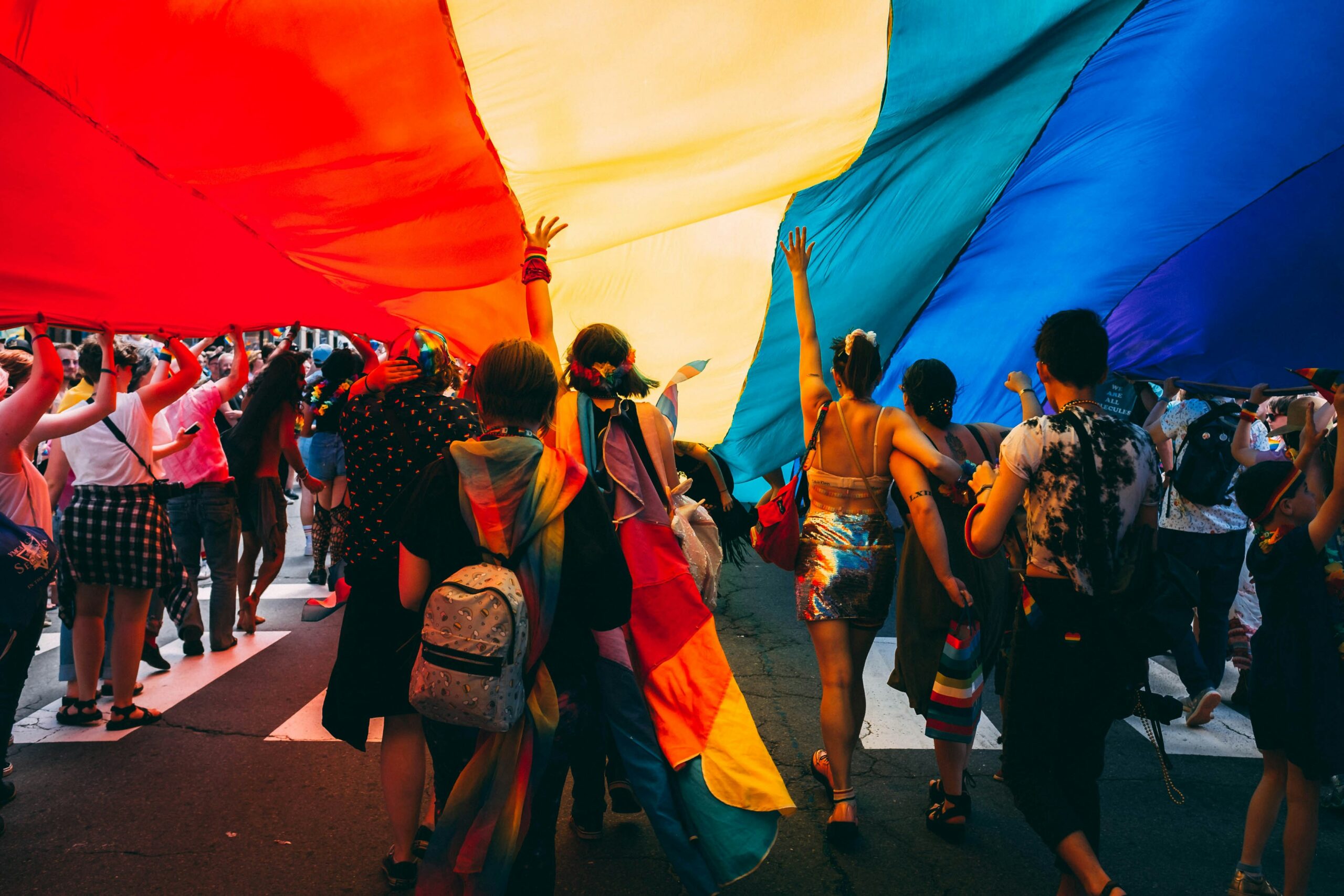Pride Month commemorates the ongoing struggle for civil rights and equal treatment for lesbian, gay, bisexual, transgender and queer people.
The significance of Pride being held during the month of June is to remember the event that sparked the flame of the international LGBTQIA+ rights movement, the Stonewall Uprising. On June 28th 1969 during a raid on The Stonewall Inn activists fought back against their oppression. Lesbians and trans women of colour including Marsha P Johnson, Sylvia Rivera and Stormé DeLarverie were at the forefront.
Pride is a chance to remember the power of standing together in solidarity against discrimination as well as celebrate everything about our LGBTQIA identities that makes us proud.
The years since have seen great advancements in acceptance and equality for LGBTQIA+ people. However some of those hard won rights are currently being threatened and many LGBTQIA+ people still face challenges to living a happy fulfilling life. Being from a marginalised gender or sexuality comes with higher risk of mental health problems due to experiencing discrimination, rejection, and hate crimes. A study by Stonewall (2018) on LGBTQIA+ mental health & wellbeing in the UK found:
- 52% of LGBTQIA+ people said they experienced depression in the last year.
- 2% of LGB people reported they had attempted to take their own lives, significantly higher for transgender people at 12%.
LGBTQIA+ people deserve acceptance and fair treatment in all areas of our lives including our workplaces. The concept of ‘coming out’ is stereotypically viewed as a onetime event. In fact it is a continuous decision making process on which spaces we feel safe to be open about our identities in. The workplace can be one of the riskiest environments to come out, LGBTQIA+ people fear negative comments, bullying, discrimination and even assault. 35% of LGB staff have reported they hide or disguise their identities at work, this number rises to 51% for transgender people (Stonewall, 2018).
To create a supportive workplace for marginalised people here are some steps organisations can take:
Develop, implement and enforce zero tolerance policies on homophobic and transphobic bullying, harassment and victimisation.
Employees report that even if their workplace appears generally supportive lacking targeted LGBTQIA+ discrimination policies can leave them feeling left behind. Clearly communicate the process of reporting homophobia & transphobia to all staff. Managers should be supported in taking swift action to acknowledge and deal with problematic behaviour. Whistle blowing services should be implemented so employees can choose to disclose in a confidential manner.
Support staff awareness through training.
Provide opportunities for all staff to receive diversity and inclusion training which will help them to understand what homophobia and transphobia look like. Including more covert instances like microaggressions (brief exchanges that send demeaning messages to a marginalised group, often coming from an otherwise well-intentioned person unaware of the impact of their words or actions).
Specifically target inclusion of transgender people.
Transgender people are facing the toughest battles to live a life free from discrimination and harassment right now. Create and implement support policies for transgender employees just starting their transition, including how to go about changing their name in workplace correspondence. Loudly speak up about trans inclusion as an organisation and remember key dates like Trans Day of Visibility on 31st March.
Promote the use of inclusive language.
Create a norm where gender or sexuality is not automatically assumed and everyone can feel comfortable expressing their identity. Openly share your own pronouns and ask staff to do the same, include them in email signatures, on lanyards and online profiles. Look out for language in the workplace that assumes heterosexual and cisgender identities are the default. If there are policy documents that apply broadly consider using neutral language like ‘they’ pronouns, ‘partner’ instead of husband/wife and ‘parent’ instead of mother/father. If collecting and storing personal data consider if its relevant to business needs to ask gender assigned at birth, include an option besides male/female which allows people to explain their own gender and titles like ‘Mx’.
Offer mental health & emotional wellbeing support to employees.
Offer employees an Employee Assistance Programme, an EAP is a workplace benefit that provides employees with access to counselling, wellbeing resources and a confidential helpline supporting a variety of personal and professional issues. Promote visibility of LGBTQIA+ people in the workplace, encourage staff to form LGBTQIA+ peer support networks and advertise this prominently, get involved in events like Pride and LGBT history month.
Workplaces where LGBQTIA+ people feel safe and confident to be themselves get the best from everybody and improve mental health outcomes.
To find out how PAM Wellness Solutions’ EAP and wellbeing services can support your workforce, you can call us on 01925 976111 or email salesenquiries@pamwellbeing.co.uk.




